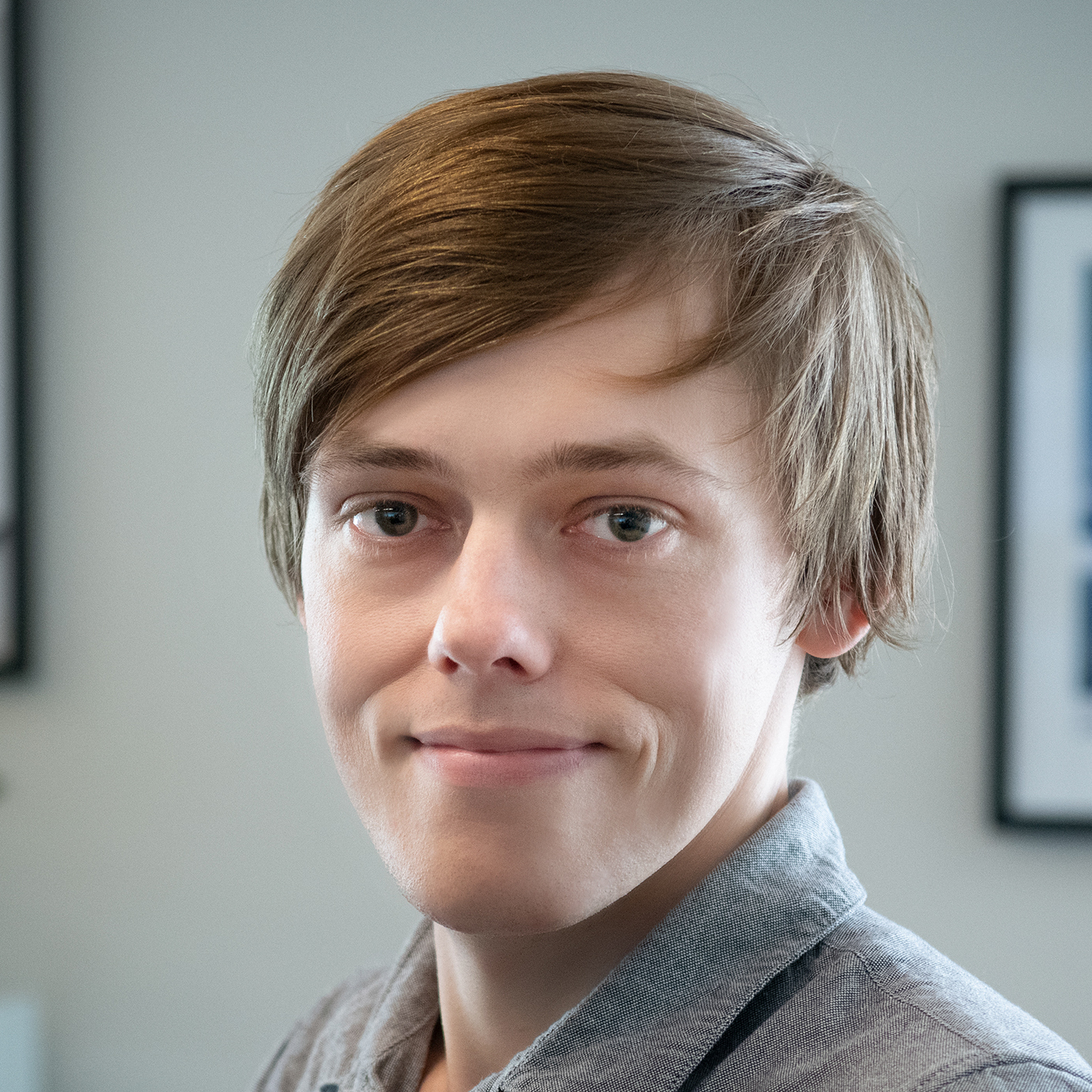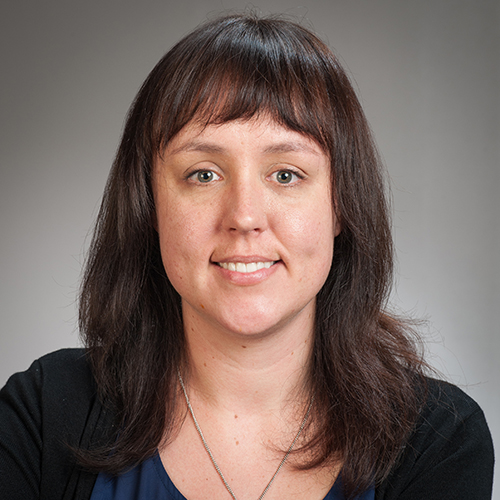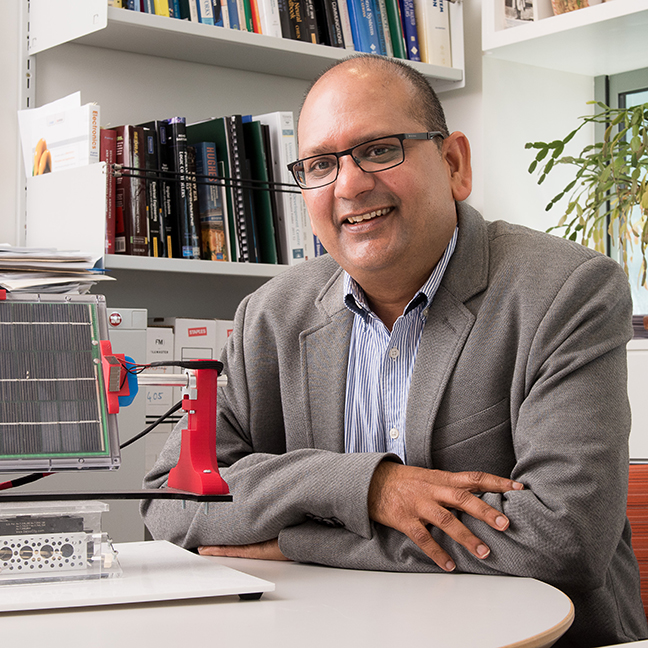Engineering and Computer Science projects
Projects for 2022/2023
Here is a quick list of the projects available. Click on the project code to see more information.
- 232 - Revisiting Digital Archive of the Future: blockchain culture, crypto assets and digital artefacts
- 600 - Throughput Optimisation in Low Power IoT Networks under Extreme Conditions
- 601 - Machine Learning for New Zealand Fish Data Analysis
- 602 - Machine Learning for Tree Species Identification
- 603 - Design analysis of the first Victoria University of Wellington cubesat mission
- 604 - Artificial Intelligence based methods for recognising individual kākā
- 605 - Genetic Programming for Explainable Dimensionality Reduction
- 606 - Genetic Programming for Aquaculture Image Classification
- 607 - Genetic programming and machine learning for job shop scheduling
- 608 - Machine learning for king salmon health prediction
- 609 - Immersive Panoramic Video Inpainting
- 610 - A Deep Learning-based System for Early Detection of Ransomware
- 611 - Bag-of-Visual-Words and Machine Learning Techniques for Pacifica Oyster Fingerprinting
- 612 - Using Artificial Intelligence for skin cancer diagnosis
- 613 - Tracking energy consumption drifts
- 614 - Building a secure content management system for indigenous communities
- 615 - Driver Generation for Web Application Testing
- 616 - Assessing the potential for ammonia (NH3) as a transport fuel in NZ
- 617 - Te reo as a supervised language interpreter for Te Ao Maori world activities.
- 618 - Kaupapa Maori protocols as a decision matrix for modelling Support Vector Machine Classification.
- 619 - Evolutionary Machine Learning and Data Mining
- 620 - Computer Vision and Machine Learning for Mussel Buoy Float Detection in Green Mussel Farm Images
- 621 - Parallel Processing for Bayesian Filtering
- 622 - Genetic Programming and Machine Learning for Horticultural Nutrient Assessment
- 623 - Interpretable Continuous Model for Facial Expression Recognition with Genetic Programming
- 624 - Using Artificial Intelligence for breast cancer detection
- 628 - Auto-selection of Optimum Transmission Parameters for LoRa
- 629 - Automatic Algorithm Design through Evolutionary Machine Learning
- 630 - Understanding Genomic Causes of Fish Quality
- 631 - Network Services Platform
- 632 - Development of the MyED App
- 633 - Virtual Power Plan simulation of a microgrid
- 634 - Predictive Power Node for LVDC nanogrid
- 635 - Shellfish mood monitor for aquaculture?
- 636 - NZ National Bus Emissions Modelling
- 637 - Investigation of solar photovoltaic configurations and framing technologies suitable for Aotearoa-New Zealand applications
- 638 - Design and optimization of renewable energy systems for off-grid communities in Maluku Province, Eastern Indonesia
- 703 - Pollution-Aware Route Planning using Drone-based Sensing Platform
232 - Revisiting Digital Archive of the Future: blockchain culture, crypto assets and digital artefacts
The research will explore how the National Library of New Zealand might align Distributed Autonomous Organisations (DAOs) and Blockchain culture with digital technologies like 3D printing to develop non-fungible tokens (NFTs) and other types of crypto assets.
There are two scholarships on offer. The successful candidates will be working alongside Scholarship 207 (Exploring the Veracity of NFTs and Crypto Assets) as well as a multidisciplinary team of four Master’s students currently researching and scoping out new opportunities in this rapidly evolving territory. The inherently multi-disciplinary nature of this emerging field requires the following expertise:
- Project 1: Media Design / Industrial Design (IoT, creative coding, computational design, high resolution additive manufacturing, and physical making)
- Project 2: Data Science & Software Engineering (back end development, security and validation)
Joint project with the School of Design Innovation.
External sponsor
National Library of New Zealand
Supervisors
Professor
School of Design Innovation

Walter Langelaar
600 - Throughput Optimisation in Low Power IoT Networks under Extreme Conditions
This scholarship will study the effect of fragmentation on multihop throughput performance in 6LoWPAN. It will involve systems development and experimentation. The scholar will have the opportunity to play with different kinds of embedded devices and single-board computers. The skills required are: systems programming experience (C/C++) and knowledge or familiarity of networking fundamentals.
Supervisor
Senior Lecturer in Network Engineering
School of Engineering and Computer Science
601 - Machine Learning for New Zealand Fish Data Analysis
In New Zealand 60% of every fish caught is processed to low-value (NZ$2 kg-1) fish oil and fish meal, usually for inclusion in animal feeds – a terrible waste of one of Earth’s limited resources. A research programme led by the New Zealand Institute for Plant and Food Research, in collaboration with Callaghan Innovation, Victoria University of Wellington, Otago Wellington and Deakin Wellington, is now seeking to change that. The research team is designing a ‘factory of the future’ inspired by ‘Industry 4.0’, which will process every kilogram of fish into high value products. This is an exciting opportunity to be part of a highly collaborative research programme spanning NZ and Australia. This project will investigate a new feature selection or classification method for the provided spectroscopic data, and compare with existing methods. A strong background in python/Java programming, Artificial Intelligence or Data Science (COMP307/COMP309 ) is required. A good background in statistics or optimisation would be preferred. The successful scholar can wrap a 15pt 400-level or 500-level course for this summer project and please discuss with supervisors for further arrangement.
Supervisors
Deputy Head of School, Engineering and Computer Science
School of Engineering and Computer Science
Director, Centre of Data Science and Artificial Intelligence
Centre for Data Science and Artificial Intelligence
602 - Machine Learning for Tree Species Identification
Trees play an important role in the wider ecosystem, providing for example carbon sequestration and regulation of climate, water, and soil erosion. The increasing availability of remote sensing techniques that can capture above-ground objects in two- and three-dimensions enables new approaches to tree management and urban planning. This project will investigate novel machine learning methods to automatically detect tree species from remote sensing images.
A strong background in Python/Java programming (COMP261) and in Artificial Intelligence (COMP307) is required. A good background in statistics and optimisation is desired. A good background in statistics or optimisation would be preferred. The successful scholar can wrap a 15pt 400-level or 500-level course for this summer project and please discuss with supervisors for further arrangement.
Supervisors
Deputy Head of School, Engineering and Computer Science
School of Engineering and Computer Science
Director, Centre of Data Science and Artificial Intelligence
Centre for Data Science and Artificial Intelligence
603 - Design analysis of the first Victoria University of Wellington cubesat mission
This summer RA position is a unique opportunity to contribute to the development of the first Victoria University of Wellington space mission. As a summer RA, the student will be responsible for the initial selection of a mission profile for a satellite equipped with a low-power electric thruster. The task will require an analysis of the power and thermal budget for different orbital manoeuvrers. The analysis will be concluded with the selection of the shelf componentry that will meet the requirements. The work will be developed using a combination of industry-standard software: STK Orbit, GMAT and Solid Works.
Supervisor
604 - Artificial Intelligence based methods for recognising individual kākā
Kākā, an endemic and endangered parrot, were reintroduced to Zealandia sanctuary in Wellington in 2002. Their populations have rapidly grown. However, their exact numbers and distribution are not well-known, as tagging and survey methods are extremely time-consuming to perform.
To address this, this research will capture images of individual birds visiting feeders at Zealandia and use these to develop machine learning-based methods for identifying individual kākā from facial and beak morphology.
Joint project with the School of Biological Sciences.
Supervisors
Programme Director, Artificial Intelligence · Senior Lecturer in Artificial Intelligence
School of Engineering and Computer Science
Senior Lecturer in Behavioural Ecology
School of Biological Sciences
605 - Genetic Programming for Explainable Dimensionality Reduction
EXplainable Artificial Intelligence (XAI) - the development of AI algorithms that make decisions which can be understood by humans - is critically important in our modern, data-driven society. Genetic Programming (GP) has the potential to be a state-of-the-art method for performing explainable nonlinear dimensionality reduction (NLDR). This project will develop new methods to perform explainable NLDR using unsupervised Genetic Programming (GP) techniques.
Supervisor
Programme Director, Artificial Intelligence · Senior Lecturer in Artificial Intelligence
School of Engineering and Computer Science
Deputy Head of School, Engineering and Computer Science
School of Engineering and Computer Science
606 - Genetic Programming for Aquaculture Image Classification
In the field of aquaculture, there are many tasks related to images, such as detecting buoys from mussel farm images, identifying different fish species from underwater images, and classifying marine animals from acoustic images. These tasks have not been fully explored by using artificial intelligence techniques, particularly genetic programming (GP), which is a very promising approach to image classification by evolving small-size, human-interpretable, and effective models.
Therefore, this project aims to develop a novel GP-based approach to addressing real-world aquaculture image classification problems, such as mussel farm buoy detection, fish species classification, and marine animal classification. The project will focus mainly on how to apply and adapt current GP-based methods to the new problem and improve its performance by modifying GP components, including function set and terminal set.
This project requires a year-3 or year-4 student with good knowledge of machine learning and strong programming skills in Java or Python. The supervisors will train the student to learn basic research skills, which will be useful for their further postgraduate research/study. The student will also learn state-of-art knowledge from the Evolutionary Computation Research Group (ECRG). This project will lead to an international publication and an open-source program.
For publications and other information, please check:
- https://yingbi92.github.io/homepage/
- https://homepages.ecs.vuw.ac.nz/~mengjie/
- https://homepages.ecs.vuw.ac.nz/~xuebing/index.html
Supervisors
Deputy Head of School, Engineering and Computer Science
School of Engineering and Computer Science
Director, Centre of Data Science and Artificial Intelligence
Centre for Data Science and Artificial Intelligence

Ying Bi
607 - Genetic programming and machine learning for job shop scheduling
Job shop scheduling (JSS) is an important optimisation problem that reflects the practical and challenging issues in real-world scheduling applications such as order picking in warehouses, the manufacturing industry and grid/cloud computing. In this project, the students will use exact methods such as dynamic programming, and heuristic methods such as genetic algorithms, hyper-heuristics methods especially genetic programming, for solving the JSS problems, and compare the results between different algorithms.
We have published a number of good quality papers in this area and have built good resources, e.g., simulation and implementation, which make it easier for beginners to work on. This project requires students who have a machine learning background. It would be good if you have taken COMP307/AIML420, or COMP309 courses. This project will be co-supervised by Prof. Mengjie Zhang and Dr. Yi Mei.
By doing this project, you will get familiar with how to solve important real-world optimisation problems using GP and machine learning techniques. You will also be skilful in using GP and machine learning techniques for different types of JSS such as static/dynamic, and flexible JSS. You will have opportunities to learn important soft skills such as critical thinking, Java/Python programming, professional writing and presentation, and communication skills. Last but not least, we will highly support you to public your work in PBRF quality-assured international conferences or journals.
Supervisor
Lecturer, Artificial Intelligence
Centre for Data Science and Artificial Intelligence
608 - Machine learning for king salmon health prediction
King salmon is the only salmon species farmed in New Zealand which plays an important role in the aquaculture of New Zealand. There are different features such as temperature, feeding frequency, and husbandry practices, that can affect the farming of king salmon. Thus, health prediction during farming is very important to improve farming effectiveness. If we can predict the healthy status of king salmon well, and solve the health issues earlier, it would be great for king salmon production, especially under the climate change challenge.
Machine learning has shown its advantages for handling different tasks including classification tasks. We currently work with Dr Jane Symonds at Cawthon Institute on king salmon health prediction, and the fish data from Cawthon is available. This project will focus on how to use machine learning to help predict whether a king salmon is healthy or not. We are also interested in which factors are important for predicting the healthy status of king salmon. This project will be co-supervised by Dr. Jane Symonds, Prof. Bing Xue and Prof. Mengjie Zhang.
By doing this project, the student will get familiar with solving important real-world aquaculture problems using machine learning techniques. The scholar will have opportunities to learn important soft skills such as critical thinking, Python/R/Java programming, professional writing and presentation, and communication skills. The scholar is expected to have a good AI/machine learning background (e.g. COMP307/AIML420, COMP309/AIML421) or data science/statistics background (e.g., with R/python/java).
The successful scholar can wrap a 15pt 400-level or 500-level course for this summer project and please discuss with supervisors for further arrangement.
Supervisor
Lecturer, Artificial Intelligence
Centre for Data Science and Artificial Intelligence
609 - Immersive Panoramic Video Inpainting
In Virtual Reality, one of the most fundamental methods of representing the real-world 3D scene is to utilize the dynamic data captured by 360-degree cameras, namely 360-degree videos or panoramic videos. This project will focus on one important aspect of panoramic video analysis, the panoramic optical flow estimation. The research will be based on the newest effective panoramic optical flow estimation method that we have proposed and just published. The student will help with the database extension and conduct experiments of testing different deep network structures. We aim to extend our research and make a larger impact.
Supervisor
Lecturer in Computer Graphics
School of Engineering and Computer Science
610 - A Deep Learning-based System for Early Detection of Ransomware
Ransomware (ransom software), or crypto-ransomware, is a malware that encrypts victim’s data and renders it useless until an amount of money (ransom) is paid to the attackers for purchasing the decryption key. Encryption of the victim’s files is a signature behaviour or the main payload of ransomware. Some existing state-of-the-art methods of ransomware detection utilised tracking of the events based on encryption of the files, but these methods only ensured partial immunity as the ransomware was needed to start encryption before it was detected. A detection system that may detect ransomware before it starts encrypting victim’s files is known as an early detection system. A few of the existing methods proposed early detection systems using the Application Programming Interface (API) calls sequences collected through dynamic analysis of ransomware (executing samples in a controlled environment to learn their behaviour). Some of these studies suggested truncating the API calls using a static time boundary, while others proposed a dynamic boundary for truncating API calls sequences. These studies then utilised various machine learning techniques, for example, Long Short-term Memory (LSTM), for the classification of ransomware and benignware (benign software). However, ransomware early detection is still under-explored; hence, requires further research.
This Project will explore deep neural networks such as LSTM to develop an early detection system of ransomware by using the API calls sequences of ransomware and benignware.
Supervisor
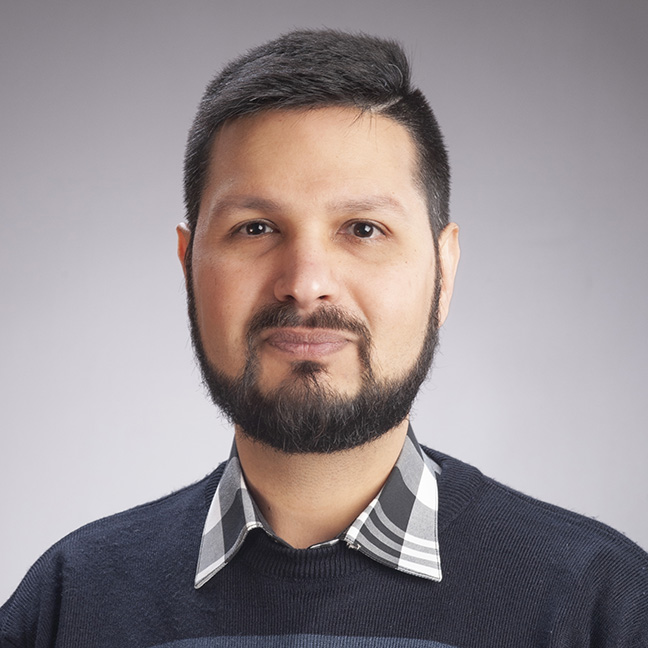
Harith Al-sahaf
611 - Bag-of-Visual-Words and Machine Learning Techniques for Pacifica Oyster Fingerprinting
Pacific oysters are key species in NZ’s aquaculture industry. The visual appearance of their shells varies greatly in both colour and pattern. This project seeks to develop techniques to extract features from oyster images which will be used subsequently for individual shellfish identification/fingerprinting to assist with breeding programme development. Image classification represents a key task in computer vision and pattern recognition. Dealing directly with the raw pixel values of images can be very difficult due to having a large search space and a single-pixel can provide very little, if any, information. Aggregating a group of pixels (feature extraction) will help in reducing the search space and form more informative and quantifiable information. Feature extraction can be performed in different scales/levels such as local (targeting a specific part of the image) and global (by considering the entire image). Furthermore, some of those extracted features can be combined (feature construction) to build even more powerful features. However, the majority of existing feature extraction methods require domain-expert intervention to identify a good set of features that can help in categorising the instances of the different groups. Domain experts are not always available and can be very expensive to employ.
This project would use BoVW, and other feature extraction methods, to extract features from Pacific oyster images, and feed the extracted features to various machine learning techniques to automatically identify individual shellfish.
Supervisor

Harith Al-sahaf
612 - Using Artificial Intelligence for skin cancer diagnosis
Early diagnosis of skin cancer saves lives as it can be successfully treated through complete excision. New Zealand has one of the highest incidence rates of melanoma in the world. According to the 2021 Cancer Statistics Report, the incidence of skin cancer is increasing worldwide, with an estimated number of cases exceeding 0.21 million, of which about 7,180 deaths. The mortality rate for melanoma is high, but the survival rate is almost 95% when the cancer is diagnosed at an earlier stage. Computer-aided diagnosis methods developed using artificial intelligence techniques help earlier detection and identify hidden causes leading to cancers in skin lesion images.
This project will investigate novel artificial intelligence methods to automatically classify skin cancers from dermoscopic images. A strong background in Python/Java programming (COMP261) and in Artificial Intelligence (COMP307) is required. A good background in statistics and optimisation is desired.
Supervisor

Harith Al-sahaf
613 - Tracking energy consumption drifts
In this challenging machine learning project, you will develop a novel concept drift detection algorithm for energy consumption shifts. This endeavour will involve distributed processing and machine learning for streaming data.
This project will allow you to develop further your data science, machine learning and distributed systems skills. The skills developed during this project are valuable for those interested in securing a job as a data scientist and those looking for a more scientific-oriented career.
Supervisor
Senior Lecturer in Artificial Intelligence
School of Engineering and Computer Science
614 - Building a secure content management system for indigenous communities
This project explores the advantages and limitations of a technology stack for indigenous computing. The stack consists of the Silverstripe CMS, Apache, mySQL and Linux interfacing with a Networked File System. The stack will need to be developed and installed on a testbed located within Engineering and Computer Science. An important part of the stack is a network monitoring, and we intend to use Splunk and a honeypot for this purpose. We will contrast the stack with an alternative solution based upon ahahu.io
Supervisor
Associate Professor of Computer Science
School of Engineering and Computer Science
615 - Driver Generation for Web Application Testing
The project will generate drivers to automatically execute user-driven execution of core workflows in real-world web applications, starting with OpenMRS. Work will use existing web automation frameworks like selenium.
Supervisor
616 - Assessing the potential for ammonia (NH3) as a transport fuel in NZ
Ammonia is potentially a low emissions fuel for hard to decarbonise transport applications, since it can be burned in slightly modified conventional combustion engines. Provided NOx emissions can be managed, ammonia could prove superior to hydrogen for cargo shipping and heavy-duty trucks. This study will assess the scope of potential demand in New Zealand and examine the opportunities for infrastructure and industry development in Taranaki, through engagement with the Western Institute of Technology (WIT) and local industry. There will also be an opportunity to share data with the Indian Institute of Technology, Delhi, experts in novel fuels for combustion engines.
Supervisor

Jim Hinkley
617 - Te reo as a supervised language interpreter for Te Ao Maori world activities
This internship looks to work with te reo Maori as a language interpretation using supervised machine learning system. The project is part of a current study wrapping the tourism sector as a scheduled task that may also be used for other aspects of Te Ao Maori activities in the future.
Supervisor
618 - Kaupapa Maori protocols as a decision matrix for modelling Support Vector Machine Classification
This internship works with te ao Maori as a modelling process that applies a supervised machine learning technique to a cultural perspective and is part of an ongoing research investigation.
Supervisor
619 - Evolutionary Machine Learning and Data Mining
Data mining tasks arise in a wide variety of practical situations, ranging from classification to regression, clustering, and optimisation tasks. The applications range from the biomedical domain such as detecting cancers from a set of X-ray images, through the economic domain such as finding associate rules at retail sellers and predicting GDP or CPI of a nation/region, the primary industry such as mussel buoy float detection and open ocean aquaculture, engineering domain such as network intrusion detection and pattern matching in signal processing, to our daily life such as human face detection and security control during COVID-19 period. Evolutionary machine learning techniques such as genetic programming (GP), particle swarm optimisation (PSO) and differential evolution (DE) are currently very hot topics in Artificial Intelligence (AI) and have been widely used for data mining tasks. This project aims to seek one or more students that are interested in AI and machine learning to develop and investigate new methods and algorithms using GP/PSO/DE for data mining tasks such as classification, regression, feature engineering (extraction, selection and construction), unbalanced data processing, missing and incomplete data mining, clustering, text mining and natural language processing. A prospectus student is expected to take one of these areas in summer.
A strong background in python/Java programming and in Artificial Intelligence (COMP307/309, AIML420/421) is required. A good background in data science, statistics or optimisation is desired. The successful scholar can wrap a 15pt 400-level or 500-level course for this summer project and please discuss with supervisors for further arrangement.
Supervisors
Director, Centre of Data Science and Artificial Intelligence
Centre for Data Science and Artificial Intelligence
Deputy Head of School, Engineering and Computer Science
School of Engineering and Computer Science
620 - Computer Vision and Machine Learning for Mussel Buoy Float Detection in Green Mussel Farm Images
Mussel farming is a major export for New Zealand that is growing fast. A number of tasks in mussel farming can be replaced by using computer vision and machine learning approaches to reduce the operational cost and human effort. An important task on mussel farms is to track the position of buoys so that mussel farmers can adjust them on time. However, automatically detecting mussel buoys from mussel farms is not an easy task, particularly from images taken from a moving platform, bad weather conditions and dynamic uncertain open ocean environment. This project aims to develop new computer vision and machine learning algorithms to tackle this challenging problem, and dealing specifically waterline detection, keypoint detection, mussel buoy matching and detection tasks. We will collaborate with Cawthron Institute to access 5TB of image data for this summer project. A strong background in python/Java programming, Artificial Intelligence or Data Science (COMP307/COMP309 ) is required. A good background in statistics or optimisation would be preferred. The successful scholar can wrap a 15pt 400-level or 500-level course for this summer project and please discuss with supervisors for further arrangement.
Supervisor
Director, Centre of Data Science and Artificial Intelligence
Centre for Data Science and Artificial Intelligence
Deputy Head of School, Engineering and Computer Science
School of Engineering and Computer Science
621 - Parallel Processing for Bayesian Filtering
Particle filters are a powerful method of implementing a Bayesian filter for estimation in such situations as radar target tracking. This project will use a graphical processing unit (GPU) to implement a parallel-processed particle filter [1] and quantify its performance. The resulting implementation will be readily adaptable to a variety of practical problems and will be published in an open-source location such as github.
The project will require expertise in python programming using libraries capable of accessing GPUs (e.g., pytorch/jax). Familiarity with signal processing would be an advantage, but is not required.
[1] P.B. Choppala, M.R. Frean, and P.D. Teal. Resampling and network theory. IEEE Trans. Signal & Information Processing over Networks, 2022 (http://dx.doi.org/10.1109/TSIPN.2022.3146051)
Supervisor
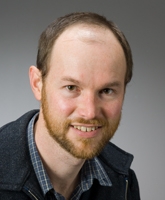
Paul Teal
622 - Genetic Programming and Machine Learning for Horticultural Nutrient Assessment
Raw horticultural products vary widely in their nutrient composition due to factors such as genetics, cultivation region and storage conditions. Quantifying the nutrient content of these products is necessary as a means of quality control. With consumers becoming more health conscious, the willingness to purchase nutrient-dense products increases substantially. Many bioactive components affect taste, which can also influence individuals’ consumption. Non-destructive, rapid assessment of these bioactive components is essential to provide the nutritional information of horticultural products to consumers, which also maximises profits. However, fast assessment with high accuracy of these bioactive components is challenging. This project aims to develop a new approach to the use of genetic programming (GP) and evolutionary machine learning method for selecting a small number of important features and building interpretable models for for quantitative assessment of nutrient content in New Zealand horticultural products. The focus will be mainly on classification and/symbolic regression.
A strong background in python/Java programming and in Artificial Intelligence or Data Science (COMP307/COMP309) is required. A good background in statistics and optimisation would be preferred. the successful scholar can wrap a 15pt 400-level or 500-level course for this summer project and please discuss with supervisors for further arrangement.
Supervisors
Deputy Head of School, Engineering and Computer Science
School of Engineering and Computer Science
Director, Centre of Data Science and Artificial Intelligence
Centre for Data Science and Artificial Intelligence
623 - Interpretable Continuous Model for Facial Expression Recognition with Genetic Programming
Affective computing/artificial emotion intelligence aims to recognize, interpret, process, and simulate human emotion or other affective phenomena through various channels such as face, voice, and biological signals. Facial expressions is one of the most important channels that human convey internal emotion. There have been tremendous efforts to develop reliable automated facial expression recognition systems for use in affect-aware machines and devices. Traditionally, people usually develop automated algorithms based on categorical model to quantify affective facial behaviours. Currently, a better choice is to use the dimensional model of affect which can cover both intensity and different emotion categories in the continuous domain. However, there are relatively few studies on developing automated algorithms in measuring affect using continuous dimensional model while most of them are black box models which are not explainable. This project will utilise genetic programming based symbolic regression to develop interpretable facial expression recognition model.
A good background in python/Java programming and in Artificial Intelligence or Data Science (COMP307/COMP309) is required. A good background in statistics and optimisation would be preferred. The successful scholar can wrap a 15pt 400-level or 500-level course for this summer project and please discuss with supervisors for further arrangement.
Supervisor
Deputy Head of School, Engineering and Computer Science
School of Engineering and Computer Science
Director, Centre of Data Science and Artificial Intelligence
Centre for Data Science and Artificial Intelligence
624 - Using Artificial Intelligence for breast cancer detection
Breast cancer is the most commonly diagnosed cancer with an estimated 2.3 million new cases and nearly 0.7 million deaths worldwide, as per global cancer statistics 2020. Breast density is widely adopted to reflect the likelihood of early breast cancer development. With the availability of mammographic image data, new automated techniques to classify breast density levels can be designed to help radiologists in real-time clinic situations.
This project will investigate novel machine learning methods to automatically classify breast density levels from mammographic images. A strong background in Python/Java programming (COMP261) and in Artificial Intelligence (COMP307) is required. A good background in statistics and optimization is desired. The successful scholar can wrap a 15pt 400-level or 500-level course for this summer project and please discuss with supervisors for further arrangement.
Supervisor
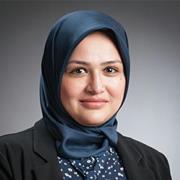
Qurrat Ul Ain
628 - Auto-selection of Optimum Transmission Parameters for LoRa
This summer scholarship project is part of an existing SfTI project whose aim is to eliminate pests within New Zealand by setting up intelligent traps that require long-distance, low-power communication links between one another and multiple devices. In this project, the student will investigate aspects of one such transmission technique known as LoRa which offers a variety of transmission parameters to be configured depending on the desired specifications such as the required transmission distance, error rate, battery consumption etc. By changing the transmission parameters such as the spreading factors, bandwidth settings, coding rates and transmission powers etc, there are thousands of parameter-combinations to be selected. It is therefore challenging to determine the optimum set of parameters, but one that is important for the success of a pest-free New Zealand. In this project, the student will investigate and propose an AI-based strategy for the auto-selection of the optimum parameters to fulfil the SfTI project requirements.
Supervisor
Senior Lecturer in Electrical and Electronic Engineering (Teaching)
School of Engineering and Computer Science
629 - Automatic Algorithm Design through Evolutionary Machine Learning
Have you tried to design an algorithm to solve a real-world decision making and optimisation problems such as scheduling and resource allocation? If so, you would have experienced how difficult it is to design a good algorithm. In this sense, AI and machine learning are potential techniques to free your hands and automatically design algorithms to solve the problem for you!
This project aims to investigate this exciting research topic, and develop novel (evolutionary) machine learning methods that can automatically design effective algorithms for complex problems while requiring as little domain knowledge as possible. We will take scheduling, vehicle routing, or game playing as case studies.
You will have chance to publish your work on prestigious international conference or journal to enhance your CV (we have been very successful in the past years). The project requires strong AI background (e.g., good grades in COMP307) and programming skills in Java/Python/C/C++.
Supervisor
Programme Director, Computer Science & Computer Graphics
School of Engineering and Computer Science
630 - Understanding Genomic Causes of Fish Quality
Aquaculture is the fastest growing food-production sector and New Zealand has the potential to develop a range of locally grown finfish species to meet the increasing demand. New genomics-based selective breeding programs are needed to help develop recently domesticated fish species into premium products. Plant and Food Research (http://www.plantandfood.co.nz) is known worldwide for its innovative breeding and genomics research, and it is leading the development of New Zealand seafood genomics.
Genomics Data Science is an interdisciplinary field that applies statistics and the tools of data science to decode the functional information hidden in DNA sequences, but this has rarely been applied to aquaculture. Data generated by these technologies is often termed multi-omics data and can include information on DNA, RNA, proteins, epigenetic modifications and metabolites, amongst others. Methods to analyse these large and complex genomic datasets include statistical and machine learning, and a host of new algorithms that can reveal structure in data, perform classifications, reveal causal patterns and make predictions.
We are looking for a highly motivated student with a background in Data Science that can be applied to omic data sets from new finfish species for aquaculture, such as whole genome data, transcriptome and epigenome data. These omic data sets need to be integrated with environmental and biological performance data of the same individuals to be able to reveal causal relationships between genotype, environment and fish performance. Ultimately, our goal is gain an improved insight into the genotype-phenotype map to inform the selection of individuals for aquaculture breeding programmes.
External sponsor
Plant and Food Research
Supervisor
Programme Director, Computer Science & Computer Graphics
School of Engineering and Computer Science
631 - Network Services Platform
Thundergrid is one of New Zealand's leading electric vehicle charging companies. We are developing tools to ensure that charging these vehicles won't overload homes, businesses and the wider grid.
Working with some of New Zealand's biggest companies and electricity networks, you will have the opportunity to make a difference to the uptake of electric transport by reducing barriers to adoption.
External sponsor
Thundergrid
Supervisor

Soheil Mohseni
632 - Development of the MyED App
Do you have a keen interest in healthcare? Do you want to be involved in an exciting new App that will directly impact patient care and their journey through some of the worst days of their lives? Do you want to work closely with 2 senior emergency medicine physicians to help develop something that will improve patients' lives and help develop better patient engagement with emergency services? Want to be involved in an App that has potential global scalability? Would you like to develop tools and techniques knowledge like GitLab, Web, React, Node.js, D3.js, Visualisation, Data Analytics, Mobile? Then this is the project for you! Come join us and see how much of a difference you can make.
External sponsor
Te Whatu Ora, Capital and Coast and Hutt Valley
Supervisor
633 - Virtual Power Plan simulation of a microgrid
The main objective of this summer research project is to investigate the possibility of finding ways and processes where maximum amount of distributed energy-based generation is used locally than being exported to the distribution network. Study will begin with a survey on existing entities around the world that perform similar activities and identifying the unique topological parameters.
The test case for this project involves a remote Maori Iwi installing 100 kW Solar and 120 kW battery in a rural setting. Hence a major part of the study would involve input from local distribution company (Powerco), a community power sharing company (Our Energy) and the Maori Iwi (Tuwharetoa).
The student is expected to analyse the generation and usage scenarios of the Iwi through modelling, identify different topologies for generation and ‘local’ distribution to maximise local usage, and write a report.
Specific requirement: A good background knowledge on electrical physics, and circuit theory together with strong communication skills.
Based in: Victoria University of Wellington with some travel required to Halcombe and Taranaki region.
External sponsor
MBIE SSIF project on Future Architecture
Supervisor
Deputy Head of School, Learning & Teaching
School of Engineering and Computer Science
634 - Predictive Power Node for LVDC nanogrid
A LVDC nanogrid is a power distribution system for a single household with the ability to connect or disconnect from the main grid. Research shows that a controlled nanogrid can increase the efficient operation of a household (and has additional advantages), when compared to a nanogrid that does not implement a control system. However, off the shelf smart switches rely on current being drawn from the nanogrid before they can make a control decision, which cause spikes of current when the device is switched on.
This project explores the use of small batteries and supercapacitors to not only supply energy temporarily to the load while control decisions are made but can also “pool” the batteries inside multiple household nodes to supply essential loads in case of an emergency.
Specific requirement: A good background knowledge on electrical and power systems engineering and circuit theory, together with strong mathematical capability to analyse the energy storage techniques. Good communication skills are necessary.
Based in: Victoria University of Wellington
External sponsor
MBIE SSIF project on Future Architecture
Supervisor
Deputy Head of School, Learning & Teaching
School of Engineering and Computer Science
635 - Shellfish mood monitor for aquaculture?
Finding ways to automate the monitoring Green lipped mussel crop is critical to growth of a $200 million industry. New technologies to measure the opening and closing behaviour of green lipped mussels have been developed. AI, machine learning and statistics are key to enabling this technology where large volumes of data are collected. This project will initially develop improved approaches to detecting when mussels open and close. It will then explore whether effects, such as daily or tidal cycles, can be detected in the frequency and duration opening events within the data set. The long term aim of the technology is to quantify the “mood” of the mussels. This will enable farmers to better predict growth in order to plan harvesting and maximise the quality of their crop. The automated gap monitoring technology could replace costly visual inspection by people on boats lifting the crop out of the water.
External sponsor
Cawthron Institute
Supervisor
Director, Centre of Data Science and Artificial Intelligence
Centre for Data Science and Artificial Intelligence
636 - NZ National Bus Emissions Modelling
Would you like to help make a different to New Zealand's carbon emissions? Interested in improving public transport?
The New Zealand Climate Change Commission identified Transportation Emissions as the sector with the greatest potential for carbon reduction in NZ. A key to planning for carbon reduction is a better understanding of the role that can be played by improving Public Transport.
Previous collaboration with Victoria University of Wellington has enabled the creation of tools that calculate Bus Emissions for Wellington and Auckland. We are now seeking students keen to expand this to a truly nationally study. We are seeking students keen to build on previous Victoria University of Wellington collaboration, and assist in developing data visualisation tools that will shape thinking around lowering carbon emissions and reducing pollution on New Zealand's transport network.
External sponsor
NZ Transport Agency Waka Kotahi
Supervisor
637 - Investigation of solar photovoltaic configurations and framing technologies suitable for Aotearoa-New Zealand applications
There are huge opportunities to make the use of solar photovoltaic technology in Aotearoa-New Zealand more effective through the use of specific technologies and configurations that are optimised for our local context. The efficient and effective use of land that agrivoltaic systems offer is especially appealing for Aotearoa-New Zealand, since more than a third of its land area serves agricultural purposes, while technologies such as the use of composite recycled piles in solar array framing offers a huge opportunity to optimize resource use and reduce a reliance on imported components. Nevertheless, in-depth analyses are required to understand the feasibility of these technology in the Aotearoa–New Zealand context. This research project, a strategic collaboration between Infratec and Victoria University of Wellington, therefore supports the renewable energy sector to drive forward the uptake of large-scale solar photovoltaics across the country.
External sponsor
Infratec
Supervisor
638 - Design and optimisation of renewable energy systems for off-grid communities in Maluku Province, Eastern Indonesia
Universal access to sustainable energy – Sustainable Development Goal 7 – remains elusive in many developing countries, and especially in remote island regions, such as Maluku Province in Eastern Indonesia. The research project is a strategic collaboration between Victoria University of Wellington and Pattimura University, located in Ambon, Maluku, supported by NZ MFAT through the NZMATES programme (New Zealand – Maluku Access to Renewable Energy Support). NZMATES has been working in Maluku since 2018 to increase access to affordable, reliable and renewable energy in the Province, particularly in remote island. Pattimura University has recently been equipped with a solar mini-grid training laboratory and is developing a training and research programme around renewable energy technology solutions for remote islands. This project seeks to support Pattimura University’s research efforts and assist off-grid communities by identifying appropriate renewable energy systems that meet their well-being needs.
The student(s) will be based in Ambon, Maluku, Indonesia and may travel to remote project locations in Maluku Province. The student(s) will be supported with travel and accommodation costs through the NZMATES programme, with funding from MFAT.
External sponsor
NZMATES (New Zealand - Maluku Access to Renewable Energy Support) programme
Supervisor
703 - Pollution-Aware Route Planning using Drone-based Sensing Platform
This project aims to develop a system that uses pollutant data collected by a drone-based sensing platform to plan potential routes with acceptably low levels of pollutants that people with chronic conditions like asthma can travel along. Current pollution monitoring sensors are static and sparse, providing very low granularity that is typically unusable for route planning. The student will be working on the system that comprises the frontend and backend, linked by off-the-shelf communication protocols. The backend server takes the data collected by a drone-based sensing platform and develop algorithms to generate possible routes based on specified pollutant levels. The frontend will be web-based and displays the routes on a map for the enduser. Where necessary, the student may also have the opportunity to fly the drone to collect more data.
Joint project with the School of Health.
Supervisors
Professor of Network Engineering
School of Engineering and Computer Science
Associate Dean, Research
Wellington Faculty of Health






